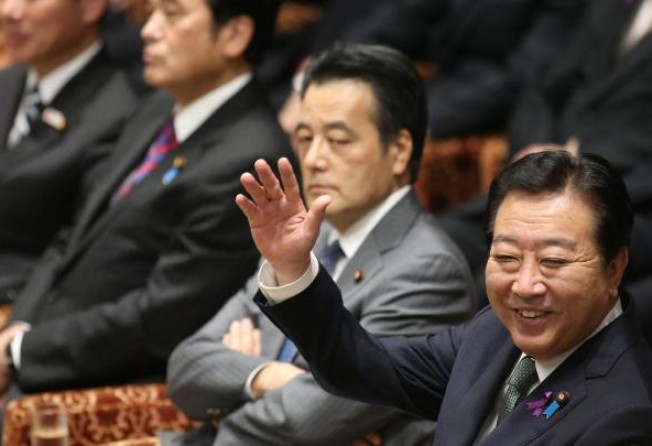Unpopular Noda ready to trigger election by January
Smaller parties rally forces in anticipation of PM dissolving parliament to pave way for poll in December or January, which he is likely to lose

Prime Minister Yoshihiko Noda is expected to dissolve Japan's parliament as early as Friday, with an election possibly next month, in a move likely to unseat him from power.
Noda will call an election for as early as December 16 or as late as January 20, according to major news media, including the Nikkei business daily and the liberal-leaning Asahi newspaper.
After months of speculation over the date of the next national ballot, the issue came to the fore on Monday afternoon, with Noda seen pushing a plan to join a vast trans-Pacific free trade deal as one of his core campaign pledges.
That would distinguish his Democratic Party of Japan (DPJ) from the main opposition party, which is largely against the pact.
"Prime minister decides to dissolve parliament this year", the front-page headline of the influential Nikkei said yesterday. "The groundwork toward parliamentary dissolution is moving forward."
The Mainichi newspaper said the premier could dissolve the lower house on Friday and hold an election on December 9.
Noda declined to discuss when he would call an election when pressed during a parliamentary session.
Political operatives have already shifted to high gear, with new, smaller parties emerging to tip the traditional balance of power.
Controversial former Tokyo governor Shintaro Ishihara took over an existing conservative party and renamed it "Taiyo no to" - the Party of the Sun, a name that recalls his award-winning 1955 novel Season of the Sun.
The media-savvy mayor of Osaka, Toru Hashimoto, has also spent time in the national spotlight again of late, with his Nippon Ishin no kai, or Japan Restoration Party gaining some traction since its inception in September.
Main opposition Liberal Democratic Party (LDP) leader Shinzo Abe, who served as prime minister for a year to September 2007, is attempting a comeback with a renewed nationalistic agenda. He remains Noda's most likely successor.
Polls must be held by next summer, when the four-year term of the current parliament expires.
Noda is widely expected to have an uphill battle to get his DPJ re-elected in the face of widespread voter disillusionment with its record in the three years since it ousted the long-ruling LDP.
In the latest Asahi poll released yesterday, the approval rating for his cabinet slipped to mere 18 per cent, while the disapproval rating rose to a whopping 64 per cent.
An election defeat would mean Noda, who took office in September last year, would become the sixth leader to leave the prime minister's residence after spending roughly a year in office.
His predecessors in the current parliament, Yukio Hatoyama and Naoto Kan, both resigned amid low approval ratings and power struggles.
With a short election cycle and fickle public opinion, Japan has changed leaders almost annually since Junichiro Koizumi, who led the nation for more than five years to September 2006.
The regular changes at the top have led to hand-wringing over Japan's diminishing influence on the world stage, as well as its declining economic status after it was overtaken by China as the world's second-largest economy.
The Nikkei said Noda's decision on the timing of an election would be determined in part by how the US reacted to overtures about Japan's participation in the Washington-backed Trans-Pacific Partnership (TPP).
The TPP is seen as a key plank in US President Barack Obama's pivot to Asia and a counterweight to the growing clout of China.
It presently groups Australia, Brunei, Canada, Chile, Malaysia, Mexico, New Zealand, Peru, Singapore, the US and Vietnam.